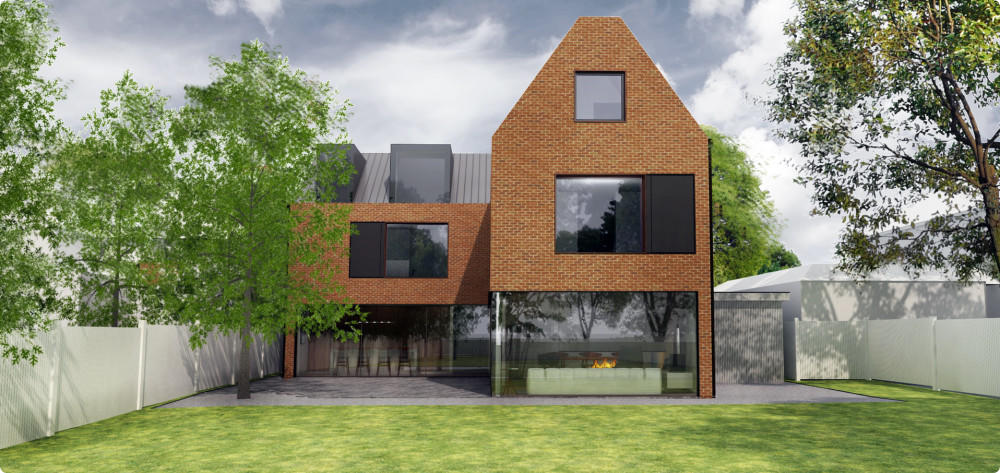When it comes to building your own home, it pays to do your homework. No doubt, this is why you’re here. If you’re looking for some practical tips on self-builds, then you’ve come to the right place.
At Resi, our New Build service means we have some of the best experts in-house. If you’re considering taking on a project of your own, here are their top 10 recommendations on what to consider before you get started…
Do a proper site-survey before purchasing land
Before you commit to a plot of land, you’ll want to make sure it doesn’t have any nasty surprises attached to it. This is where investing in a proper site-survey pays off.
By getting a qualified land surveyor (ideally chartered) on board, you’ll be able to know upfront if the land suffers from…
- A difficult inclination
- A lot of clay in the ground
- Troublesome trees
Among other things!
In some cases, a site survey might reveal your desired plot isn’t suitable for residential purposes. However, in others, it can help you get a better idea of budget requirements. Even the problems listed above can be overcome, as long as your architectural team know about them upfront.
Always have 10% contingency in place
Speaking of budget, when it comes to nailing down how to fund your build, make sure you leave nothing to chance. Self-builds are big projects and can cost anywhere between £200,000 to over £800,000+ to build (the sky is the limit, really).
Because of these numbers, many try to squeeze as much build out of their finances as possible, leaving little to no contingency. This will put you in serious danger of running out of funds, as it’s not uncommon for delays to happen, the weather to disrupt construction, or for a legal dispute to arise.
For proper protection, our Finance team always recommends creating a contingency fund that’s at least 10% of your construction budget.
You can build bigger for cheaper than you would for buying outright
However, self-building isn’t always about reigning yourself in. Afraid of running out of money, some self-builders opt for small, conservative designs, rather than going for the size they actually desire.
While it’s good to be budget-conscious, don’t forget that you can get bags more space for your money when you’re building your home yourself. After all, with no developer involved, their overhead fees are removed, saving you 10-30% of what a house would cost to buy already built.
In 2020, we estimate the cost of building your own home to be between £1,800 and £3,000 per square metre. To work out how this translates into a home on your budget, ask one of our experts for a free project assessment.

Take your time selecting contractors
It’ll come as no surprise but the construction company you choose will have a big hand in shaping your future home. Therefore, it really pays to take your time during the tendering stage.
Remember: once you’ve signed a contract, it’ll be very difficult to change your mind. Companies don’t like to take over another builder’s work.
In order for you to make the best decision, our Connect team recommends you…
- Check their finances for any suspicious activity, such as a recent change in directors.
- Protect yourself with the right payment plan, one that has you releasing funds at key milestones and only when the work has been quality-checked.
- Get references from three previous clients, ideally from one project completed recently and another from at least 18 months ago.
- Check which contract they’re using, we recommend a JCT contract.
- Look into the details of their quote and make sure every design feature has been costed.
- Compare at least three companies and look for anomalies. Prices that are dramatically different from their competitors can be a red flag.
At Resi, we’re able to introduce you to vetted contractors in your area. Our Connect service introduces you to vetted contractors who can help bring your designs to life during construction.
We vet contractors by assessing them against a range of criteria amongst which are: whether or not they are Trustmark or FMB affiliated, whether they have the relevant insurances in place; an assessment of their past work; meeting minimum financial standards; and finally, references from both previous customers and trade.
Learn more here.
Smart garden design
As the 2020 lockdown has shown, garden space is a vital part of any home.
Therefore, when designing your new home, make sure you’re giving your outside space just as much thought as your indoor. The best thing you can do in the early stages is to ensure your garden is south facing, this will help maximise the amount of sunshine you’ll get to enjoy and make for some pretty happy plants.

Think long-term when it comes to finance
Unless you’re sitting on a big pot of savings, it’s likely you’ll be using a loan to finance your build. If this is the case, make sure you’re thinking about those repayments. This is where going with a specialist lender can really pay off, one who has experience in handling property-related investments.
At Resi, our Finance team are able to take into account both your current and future equity (the value of your new home) so you get the best rate, now and in the future. As official partners to the Mortgage Advice Bureau, we’re able to source the best lenders and rates for your project, working with your designers to ensure you get the right amount of funding at the right time.
Learn more about your finance options here.
Be prepared for planning
Entering the planning stage can be daunting for any self-builder, so make sure you’re doing everything you can to give yourself the best chance of success.
For big projects like this, we would recommend going for a pre-application, in order to give yourself and your architect a good idea of what’s possible in your space. This will also help you establish a relationship with your planning department early on and gauge the way they work.
Unfortunately, planning permission is rather subjective, so what may get the green light in one area, might not in the other. That’s why getting to know your planning officials is so important. For a little extra help, ask your architect if they’ve worked with the planning department before. They’ll likely have a few tricks up their sleeve for dealing with them.
There’s more than one way to build
Many people assume there’s only one way you can build a house and that’s old fashioned bricklaying. However, construction has come a long way in the last few years and there is now plenty of choice in the market.
Take, for instance, ICF (Insulated Concrete Formwork) construction. It’s been around since the 1970s but has only recently been gaining traction in the UK. By using a hollow framework, ICF allows you to build faster and to get better results. Learn more about ICF here.
Make sure you add construction methods to your list of enquiries when talking to an architect.
You can design outside the box
There’s a common misconception that it’s easier to get planning permission for a new build if the design is quite conservative. However, not all planners like you copying what is already there. In fact, they sometimes want you to think outside the box to justify why you’re building from scratch.
Therefore, don’t be afraid to push the envelope with your architect. Be bold in your ideas and encourage your designer to get creative. Though securing planning approval is important, so too is realising your vision for the project.
Your designers can always reign in these ideas if your planners get fussy. However, if you don’t ask, you don’t get!
Bring your kids to site (safely)
If you’re committed to getting it done, a new build can be realised within a year of you starting the project. For constructing a home from scratch, this is a good turnaround time. However, for younger residents, a year can feel like a lifetime.
When it comes to moving house, many children can feel daunted by the prospect, even scared. However, we’ve found that by involving your kids in the process, the prospect of moving (and the wait this entails) becomes much more exciting.
If possible and it is safe to do so, why not take your kids to visit the construction site every now and then? Let them say 'hi' to your contractors and see the work involved. It should impress them to know all that is being done to make them a new home!
Want to know more about building a house? Then book yourself a free consultation with our New Builds team. They’ll assess your plans and provide expert advice, along with a tailored quote for our services. Click here to book yours today.























